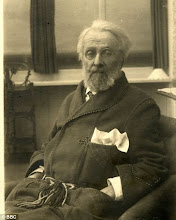The latest spike in the casualty figures from the dismal conflict in Afghanistan has provoked a flurry of comment and criticism from all sides. At one end of the spectrum you have the armchair warriors who say we must never surrender to the Taliban and who will willingly fight to the last drop of someone else’s blood. And on the other end, the troops-out peaceniks of the Stop the War Coalition and similar organisations.
What is the ordinary person to make of it? By persuasion, by calling, I am of the peacenik party. I was against the Iraq War. I called it the wrong war, at the wrong time, in the wrong place, against the wrong enemy, for the wrong reasons. I had my reservations about going into Afghanistan. Picking a fight with the Taliban because they refused to surrender Bin Laden was a big ask. Did they even have the power to surrender him in the first place? Did George Bush even care, as long as the TV audiences at home could see US bombs falling somewhere, on someone vaguely Muslim, in retaliation for the lamentable failure of US foreign policy that was 9/11?
The reasons for being in Afghanistan today are a lot different from those advanced in 2001. The original reason, to flush out Bin Laden, has been unsuccessful largely owing to the porous nature of the Afghan-Pakistan border, the lack of sufficient resource to do the job, and the fact that the mission got deflected, along the way, into a larger mission to win over the hearts and minds of the population. Quite how you win over the hearts and minds of the population by invading and bombing them has become an increasingly problematic question, and one to which there is no answer. In using violence to try and change the culture of radical Islam and in attempting to use it to weld together an uneasy amalgam of warlords to a government that many feels lacks legitimacy, the UK/US forces in Afghanistan have probably radicalised more than they have converted. We’ve created an unholy alliance of the Taliban and Al Qaeda where none existed before. In short, we have incited every hothead east of the Euphrates with access to an AK47 or a grenade-launcher to take a pot at us.
It is often advanced by the Prime Minister that our military presence in the area is somehow making us safer from terrorism. The problem I have with this approach is that the people who perpetrated the worst atrocity on British soil since the dark days of the IRA were actually from Leeds and Reading. They were moved to carry out their actions by our presence in Iraq and, er, Afghanistan. So far from being a preventative measure in the circumstances, I feel that our presence there is exacerbating the situation.
Subscribe to:
Post Comments (Atom)


No comments:
Post a Comment